Last Updated on July 28, 2021

First off,
I pull up to the hotel for the
OF THE DEAD
junket, and as soon as I get out of my car, the valet looks at me and says
“Room 806.” He already knew what I was there for. Do I look that poor that I
could only be a junket reporter, and not an actual guest staying at the hotel.
My car doesn’t look that bad does it? It’s a ’99 for God’s sake!
This has nothing to do with George Romero. The rest of this story does
however.
Now, we
all know that George Romero is the mastermind behind the original zombie films,
starting with NIGHT OF THE LIVING DEAD, DAWN OF THE DEAD, and DAY OF THE DEAD.
After movies like 28 DAYS LATER and the remake of DAWN OF THE DEAD have come in
and stolen a little bit of his thunder, the maestro is back with a new sequel:
LAND
OF
THE DEAD
.
LAND
OF
THE DEAD
is a welcome return to form for the man who first gave us
the walking dead. The film is of course equal parts horror, comedy, social
commentary, action, and an all out gore fest. One particular shot made me glad
that I don’t have a navel ring…you’ll see what I mean.
Romero was
nice enough to spend some time talking with JoBlo.com during a recent press day
for the film. It’s nice to see a guy at Romero’s age not only getting a shot
at a major summer release, but also being acknowledged for his contributions to
the genre. It’s enough to fool you into thinking ageism doesn’t exist in
Hollywood
…well, for a few minutes at least. I was more than happy to hear Romero talk
about the film. A guy who’s got this much experience, you’re bound to learn
something. Plus, the social commentary in this DEAD film feels a little more
relevant, so it will no doubt resonate longer than the previous entries in the
series.
GEORGE
A. ROMERO

Any
pressure on returning to these movies, and if so, how do you get over it?
Oh boy, I
don’t know, this is the pressure right here. It wasn’t so much pressure, I
done these sort of few and far between. So, I actually started this, I started
the idea for this before 9/11. I might have to do…I had this conceit that I
did one in the 60s, the 70s, the 80s, I missed the 90s because we got…my
partner and I, Peter, we got wound up in development hell out here. It was about
8 years where nothing happened, couldn’t get a movie made. I wound up making
more money during that period because I worked on all these sort of high profile
projects, but they never happened. And so I fled.
And we
raised 5 million bucks…and made a little movie called BRUISER that nobody’s
seen. So I missed the 90s. After licking my wounds from BRUISER, I started to
write this. And I wound up having something that I thought was presentable and
sent it around I think right before 9/11, literally a few days before 9/11. Then
everybody just wanted to make soft fuzzy movies, so I put it on the shelf for
about a year and a half. Then came back to it with the idea that of reflecting
this idea of the new normal and the war, and so in a way I think it’s a much
more interesting film now.
Initially
it was about, it was about ignoring the problem and there was the Kaufman
character and there was Fiddler’s Green, but it was more you know, ignoring
social ills, like AIDS and homelessness. Just telling people “don’t’ worry
about it, that’s their problem.” I think this is more impactful. I don’t
try to put it right in your face; I just try to get it in there. Maybe it’s a
little too on the nose when he says “we don’t negotiate with terrorists.”
I have to say somebody noticed. A reporter I talked to earlier today said “boy
that truck when it comes down that little street in that town, you can’t help
but think of Iraq.” So I guess the stuff does get noticed. I try not to put it
right up in there.
Congratulations
on your return.
Thank you.
I didn’t know I left.
Can
you talk about your project MASTERS OF HORROR?
Yeah,
MASTERS OF HORROR is something I’m hoping to do. Mick’s an old friend. I’m
hoping to do it, it’s gonna depend I guess. That’s sort of related to what
happens with this. If this opens strong I might be in a situation where I have
to do another one of these or will be asked to do another one of these right
away. In which case I’ve sort of left the characters, the truck and those
characters, I’d wanna almost make it Chapter 2 of the same movie. If that
happens. I just sort of finished the story and I have an idea of how to go with
it. I would think of it in my mind almost as one film, if I had to do it you
know, like next year. Unless we get nuked! And there’s something else to talk
about. So that’s it, and if that happens I may not be able to do the MASTERS
OF HORROR. I’ve been so tied up on this thing that I haven’t been able to
write a script for it. Mick sent me a couple of scripts; a couple of them are
pretty nice. So I’m still hoping that I can get a couple of weeks and be able
to do that. I have a couple of other things that we’re working on. Again,
everything would get trumped if they wanna do a sequel to this.
Did
you face any pressure to update this material for a modern audience?
I don’t
think necessarily in those terms. The scope of this film was much bigger than
anything else, so it needed money. Although we still…we weren’t rich.
We’re under 20 (million), even after they threw money at it in order to get it
finished when they changed the date. They wound up having to spend some more
money just to…they had everybody working overtime, sound mixers, CG guys. But
it’s still under 20. And it was still pretty much guerilla filmmaking. So, on
the set man, there was basically not a big difference. In fact, we were much
more relaxed shooting DAWN. We had 42 days to make this film. The crews were
fabulous, the cast was great, nobody finked out. Everybody was there to do it.
And it was all night.
Of the 42,
we only had I think 8 days indoors, and it was all night in freezing Toronto
weather. So it was very, very hard. As far as the sensibility, I’ve sort of
made slight stylistic changes in all of them I think to more reflect the time,
the cinematic style of the decade as well as the politics. So that was a
conscious decision too. I had a wonderful DP here. As far as it fitting into the
group, I haven’t really changed my attitude towards the zombies. They don’t
run, I mean I say facetiously that my guys will take out library cards before
they join health clubs. I’m more interested in their mental evolution. I also
don’t find them as threatening when they’re running at you. I say it’s
like a first person shooter game or something. I don’t find that as
threatening. I grew up on the Frankenstein monster and the Mummy, and these
things that sort of move at you slowly. They’re hard to stop, you gotta find
the Achilles heel. That’s just my personal take on it.
This
series now spans the course of your career. What do you think you know now as an
older filmmaker doing this film, that you didn’t know making NIGHT OF THE
LIVING DEAD?
Mostly
what I’ve learned has been more about craft. I still feel that I’m learning.
John Ford made a couple hundred flicks, you know. You develop a lot of tricks
that you can keep in your hip pocket. I think I know how to move the camera
better, I’m more sure of myself. I know that if we’re pressed for time I can
eliminate this shot, that shot, and still tell the story. So it’s mostly that.
It’s also I think as you get older you get less…you feel less intimidated.
You just feel a little more like you can do what you want to do. Worry a little
bit less about protocols. You feel freer I guess to be yourself, which is just
something that comes with age.
NOTE: The previous answer perfectly illustrates my point about ageism. We can learn so much from a guy like Romero, but serious students of film are so rarely afforded the opportunity to learn from film’s elder statesmen because these directors are “put out to pasture” in favor of the hot new flavor of the month commercial director. Whoops, I almost fell off my rickety
soapbox. — Chris
What
do you see in the zombies that other people don’t see?
I don’t
think that I necessarily see anything in them. As I say, I like them being
personalities. I think that maybe what I’ve done that I haven’t seen in
other films is that they’re not just a pack of people all in clothes from the
Gap. I think that you can give them personalities with wardrobe. You know,
it’s one of the first things that I asked the wardrobe designer to do was make
sure that we know who they are, because they’re us. We come from different
walks of life. And I started doing that really with DAWN. I’ve always had real
characters, real zombie characters, from DAWN on. In this case, I think it’s
shooting them, giving them close ups, treating them like real players, which
they are. They’re not just a mass. Of course I was really trying to work on
that with this, Big Daddy and…particularly his central core of people that
come from the town, all have distinct personalities.
I prefer
to let them do their own thing, and sometimes you get some really outrageous,
really way over the top stuff. I’ll say that’s too much, that doesn’t
work. It’s all about believability.
How
do you feel about the success of the remake of DAWN OF THE DEAD? It had to put
you back in the spotlight a little bit.
I don’t
feel that it did. Obviously I was a little frustrated when those films came out
first, but we were already in negotiation
…we were in negotiations with Fox for like a year and a half on this film.
And that started around or prior to the release of 28 DAYS LATER, so DAWN was
not out there yet. But it was one of those things where the contract dragged and
dragged. The lawyers taking a week to a month to get back to each other to
change a sentence. Before long it was a year and a half. It was just
coincidental that Mark Canton (producer), he wanted to make the deal. So I think
the film would’ve gotten made.
I think
that what happened is that because of the success of those films, Universal was
willing to pony up a little more dough, which they did even during the shooting.
It was originally around 15, 15 and a half, something like that, and they ponied
up the money during the shoot, the extra dough. And then, at the end, when they
saw the film, and liked it, they gave us a little more money to go and shoot 3
more days. Really, there was a scene, the scene where they chop through the
fence and see the targets. The scene was in the original script, but we just ran
out of time, and there was one we decided to drop. We had 42 days and that was
it. There was just no more money to shoot an extra day.
Was
there more that was shot that we’ll see on the DVD?
There are
a few things. There’s one scene in particular, there’s one scene where Cholo
goes into, before he meets Kaufman, he goes into a neighboring penthouse and
finds a human that hung himself and has to kill him. That scene was one that we
just didn’t have time to…we didn’t think that it turned out as effectively
as it could’ve and we didn’t that it was necessary, so that’s really the
only major scene from the original script that’s gone. There are…I think,
the DVD version, we’re working on it now. I think it’s about six minutes
longer. But it’s all just adding back…putting in some effects that were
excised. And adding just little things, some dialogue, just little bits of
dialogue in existing scenes, that we cut out just to tighten pace.
What
has been your favorite of the recent zombie films?
SHAUN.
SHAUN
OF THE DEAD? How difficult was it to get those guys to do cameos for you?
Difficult?
They were just…they flipped. They’re great guys. They sent me a print; I was
on a little island in Florida called Sanibel. Universal sent down a courier with
a print, before it was released here. So I sat in this little theatre all by
myself one morning and watched it and flipped for it. I called them up right
away. We’ve sort of been in touch ever since. They’re great guys. They
would’ve been there hell or high-water.
Talk
about some of the social commentary.
In DAWN OF
THE DEAD it’s about the stuff, it’s about consumerism, and you know if
you’ve got a pair of Nikes that’s all you need. This is much more, again,
modeled after this administration. It’s all executive. Now it’s fancy stuff
for people who can afford it, it’s
the administration dealing in a big, big box and doling out little bits to keep
people, as he says, keep em off the streets. The sort of service personnel are
relegated to a very different lifestyle. So it just seemed natural, because
that’s what this is really about. I mean its Halliburton. It’s a different
era.
Did
you know Dennis Hopper was a Republican?
I know!
Who knew? EASY RIDER’s a Republican, goddamnit. But he came in knowing what it
was. The first thing he said to me, he said you know “people want me to play
my villains way over the top. I’m not gonna do that here. This guy has to be
Rumsfeldian. I’m not gonna go over the top with this at all. But he’s kept
it pretty restrained. But he got it you know, we haven’t had any big arguments
about politics.
Can
you talk about assembling the cast?
Well Asia,
I’ve always thought of Asia. I’ve known her since she was knee high, through
her dad. So I went in saying “I’d love to use Asia for this.” And the
studio went along with that. And Simon, I’d never met. But he’d shot a
series in Pittsburgh called the Guardian, he was there for three years, so we at
least had some commonality there. Dennis I’d never worked with, never met
either. We have that 60s commonality, that frustration “geez, too bad it
didn’t work out.” And EASY RIDER and NIGHT came out I think within a year of
each other, so we have a lot to talk about. Robert Joy I worked with before.
Leguizamo, again, I was saying right at the beginning of casting, I said “if
we can get someone like John Leguizamo.” And Mark Canton arranged to call him
up, and turns out that John knew my work and said yes right away. I was in hog
heaven. This cast man, they really came to work. Nobody was in their trailer. It
was a rough, rough shoot. Everybody was right out there, crawling around in the
mud. Everybody took it quite seriously, and got it, got the point of it.
What
sparked your interest in filmmaking, and what are some of your interests outside
of filmmaking?
I used to
paint, I went to college to study painting and design and found out that I
wasn’t good enough. It was at Carnegie Mellon. They had a wonderful theatre
school there, so I transferred into that department. But all the while, never
thinking…I thought you had to be born royalty to make movies. Even though I
had an uncle when I was a kid who had an 8mm camera, and I tried to make a
couple of little movies on my own, never taking it that seriously, it was just
sort of a hobby. And when I was in college, very few schools had equipment. The
class just sat down and watched BATTLESHIP POTEMKIN and talked about it a lot.
That was pretty much it. But, I always loved movies, forever, ever since I was a
kid. Influences? Michael Powell probably, because he’s my man, and Orson.
When I
came out of school, I left without ever graduating. In those days, cities the
size of Pittsburgh had film labs. And so I just went down and hung out at one of
these film labs. My first job as a P.A. was literally bicycling news, news was
on film. These journeymen guys were splicing together the optical; they’d
shoot with Oricons with an optical track and be splicing this shit together,
smoking cigarettes over the flammable glue pots. It was like a press room. It
was in one of those labs that I learned the basics. We started our company to do
commercials on film. And that’s how our first little group got together.
LAND
OF THE DEAD RIPS INTO YOUR FLESH ON JUNE 24



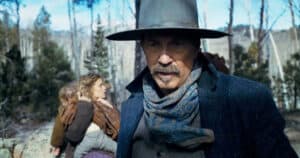
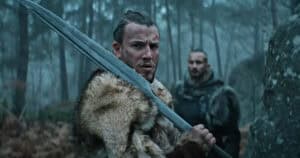
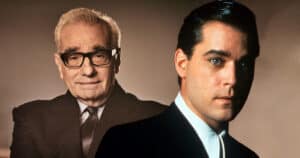
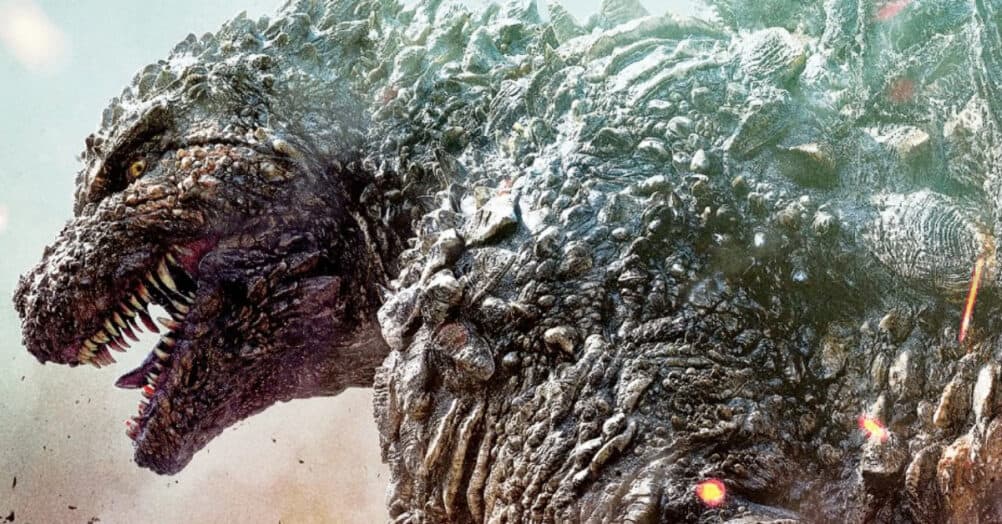

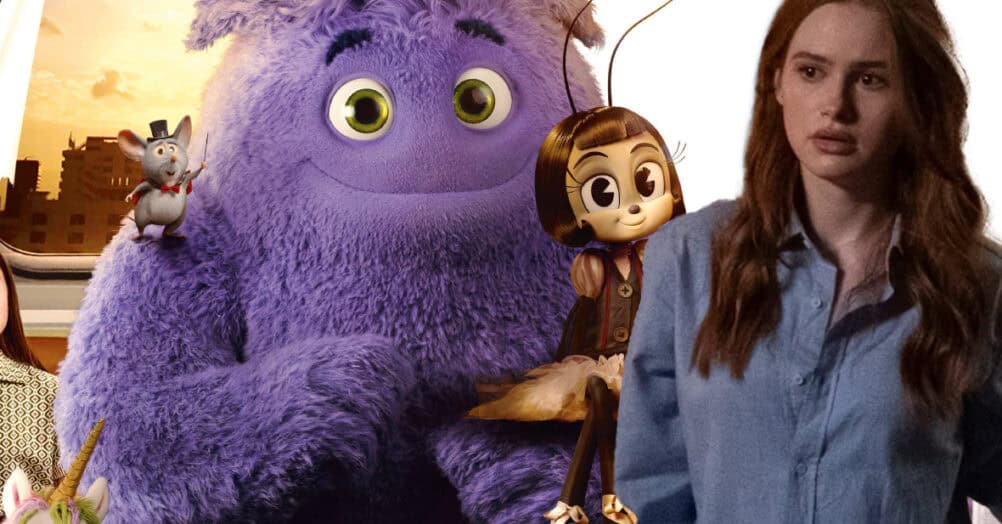
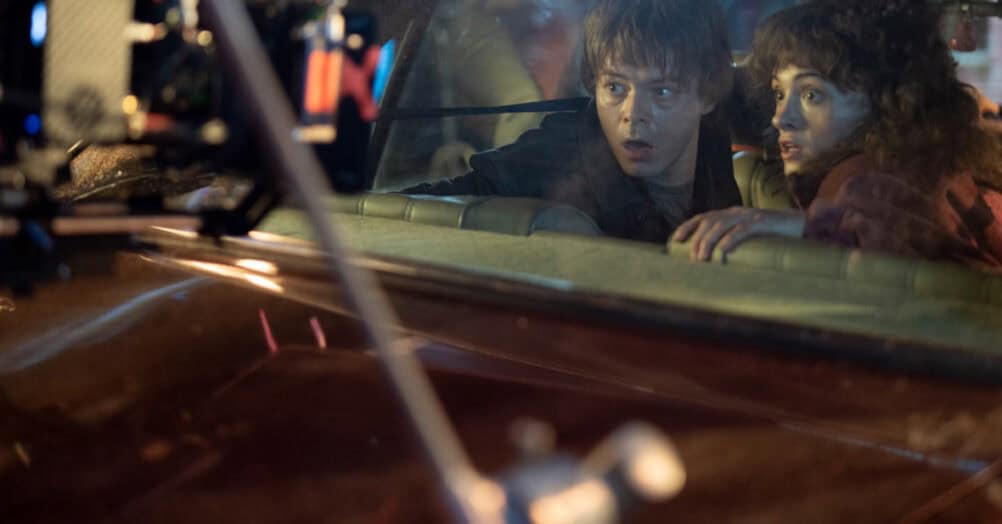
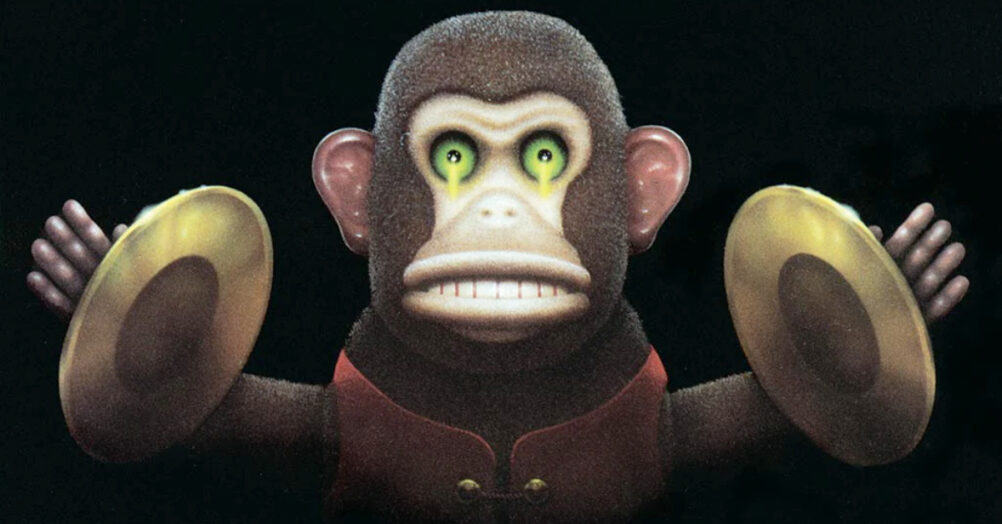
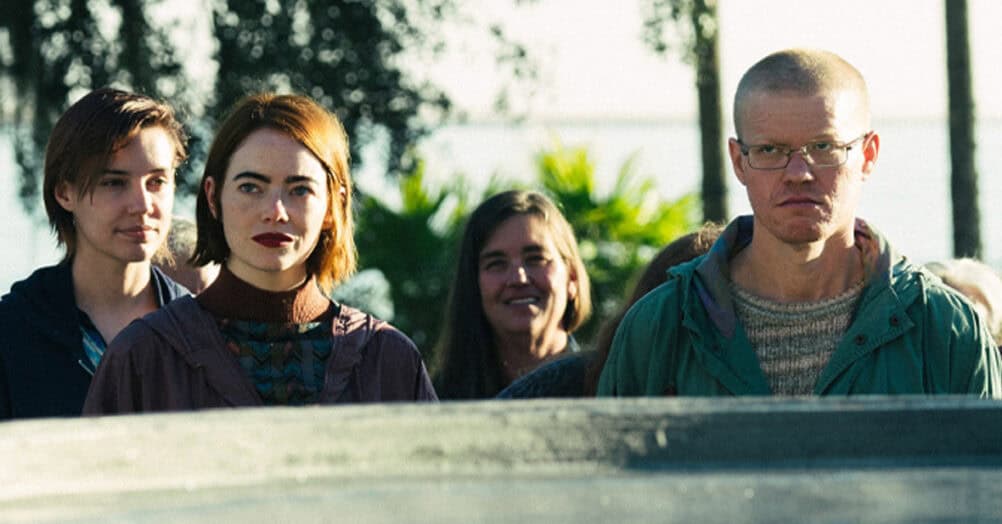

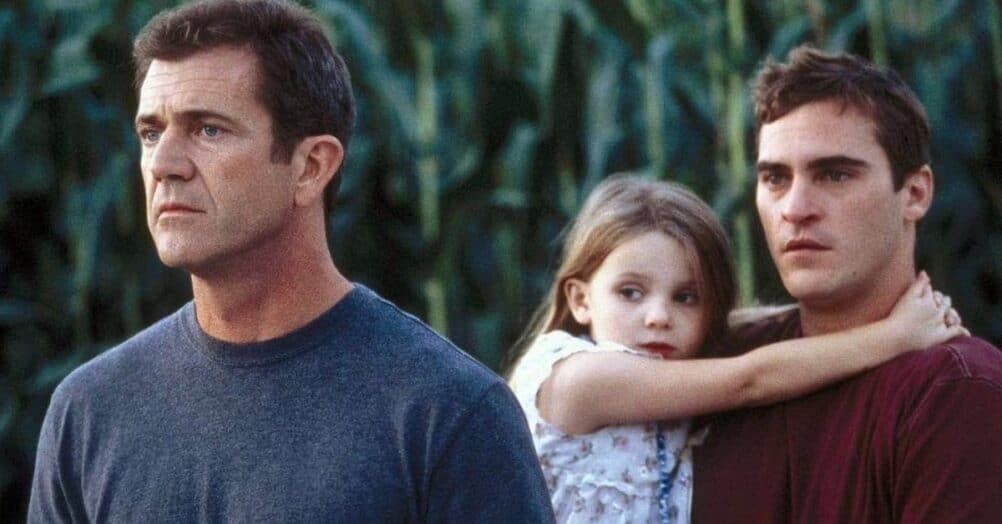
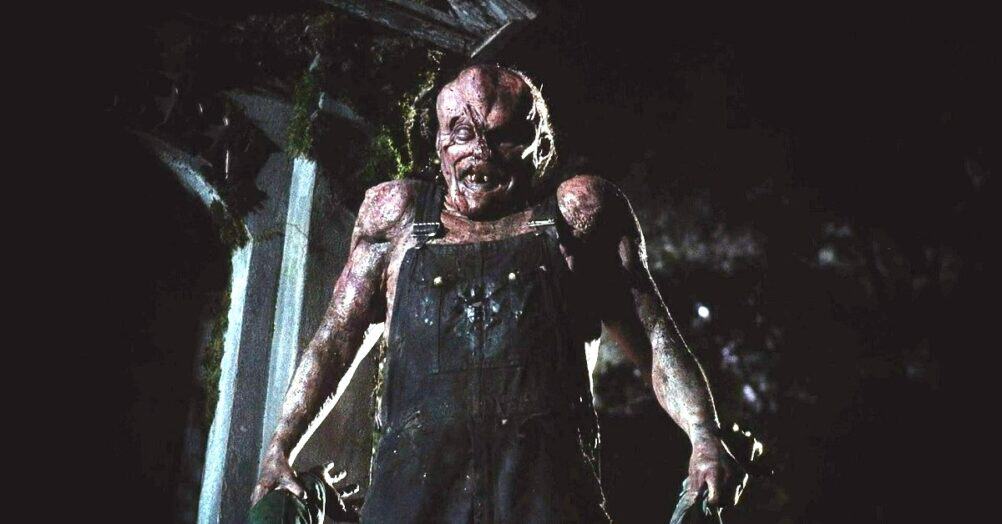
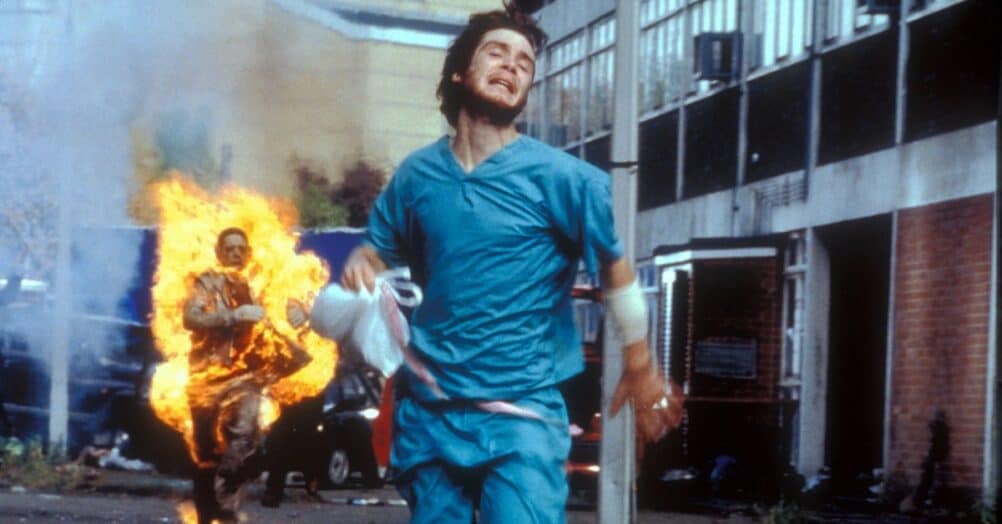
Follow the JOBLO MOVIE NETWORK
Follow us on YOUTUBE
Follow ARROW IN THE HEAD
Follow AITH on YOUTUBE